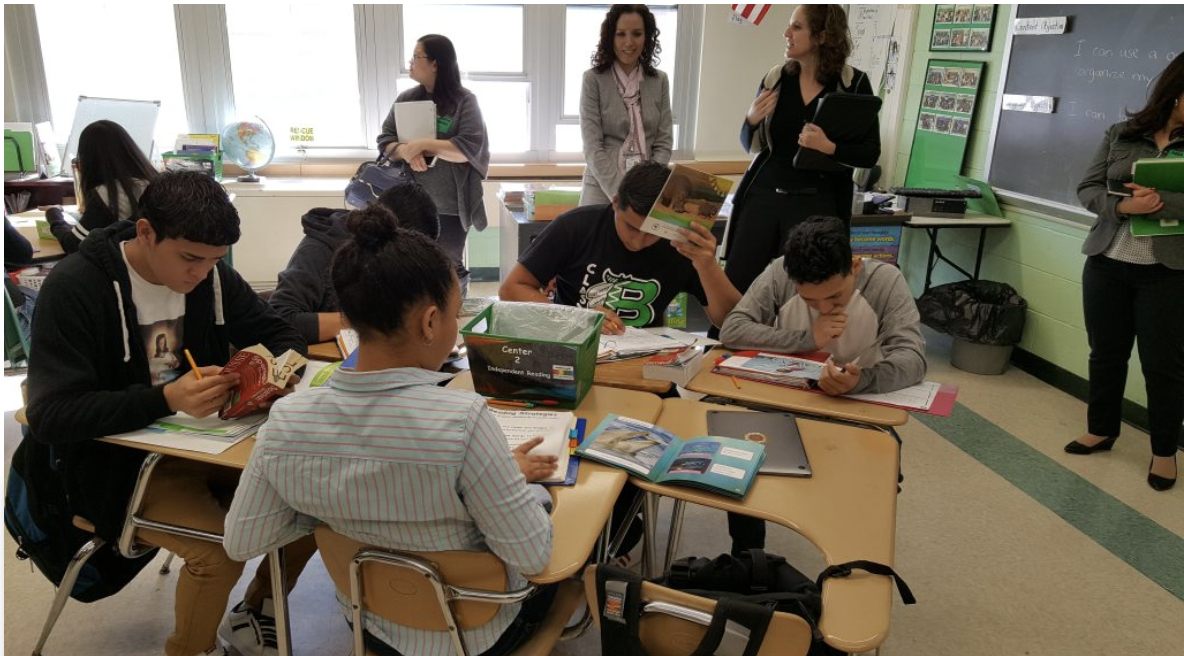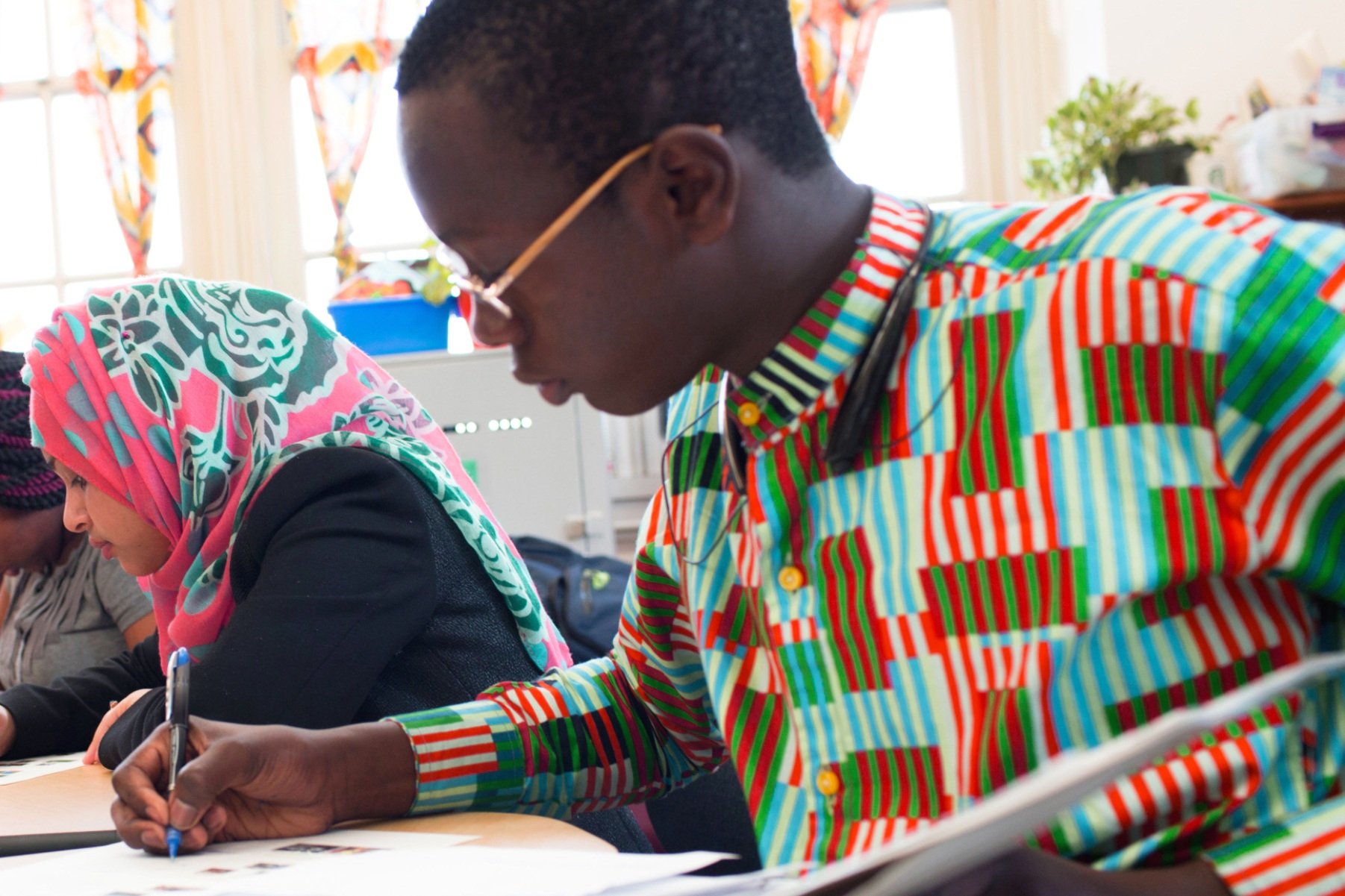
School-wide Systems for
Multilingual Learner Success
School-wide Systems for Multilingual Learner Success
A Roadmap for Leaders
Innovative and accessible, this book provides a roadmap for designing school environments that address the needs of English learners (ELs). Offering a wealth of resources to support school leaders working with multilingual students, Auslander and Yip explain how a systems thinking approach enables the development of stronger school-wide multi-tiered systems of support and can lead to meaningful, context-specific solutions that set up ELs for success. With vignettes, case studies, and tools for readers in each chapter, the book not only identifies what effective practices look like but also outlines methods to help effectively implement culturally and linguistically responsive teaching. This book covers relevant topics in the field, including
Teacher team inquiry, planning, and collaboration
Social-emotional learning in planning and instruction
Culturally and linguistically responsive, trauma-informed assessment and interventions
Effective leadership strategies
Perfect for district, school and teacher leaders, this book includes concrete strategies, tools, and resources for implementing research-informed improvements to support different categories of multilingual learners, including newcomers, students with interrupted education, and long-term ELs.
Levers for change to support culturally and linguistically diverse students.
-
Develop sustainable instructional teams
Chapter 2 focuses on the role of instructional teams in the development of consistent school-wide practices to serve multilingual learners, and how leaders can put the right conditions in place to develop teacher teams and facilitate professional learning, organized around the needs of multilingual learners. Based on yearlong field research, the chapter describes in detail the collaboration of a teacher team at one school and how they set up group learning routines and meeting agendas with a focus on linguistically responsive instruction. The chapter includes key actions and planning checklists for leaders to use to support their own teacher teams, provides planning tools to support team development with a focus on language development, and provides examples of the impact of teacher collaboration on student learning.
-
Integrated Practices for Social-Emotional Learning
In Chapter 3, the focus is on school-wide collaborative practices that bring together counseling and instructional staff to serve the unique needs of multilingual learners, resulting in integrated practices that support students’ social-emotional learning both in and outside of the classroom. The chapter shows how leaders in different contexts create organizational structures to intentionally combine the counselor’s holistic perspective and practices with the instructional expertise of teachers, resulting in a holistic approach to student learning. Through structured collaboration, school staff can improve how they identify students’ social-emotional needs as well as concrete and culturally responsive strategies to address those needs. The chapter features stories from individual practitioners and cross-functional teams, examples of resources utilized within the school community as well as tools that practitioners can use in school-wide structures for social-emotional learning.
-
Culturally & Linguistically Responsive Data Practices
Chapter 4 showcases how schools can coordinate the use of culturally and linguistically responsive data practices that integrate instructional and social-emotional support to help multilingual learners thrive in school. We present a multilingual learner data framework that brings together language and literacy assessment data with cross-cultural and social-emotional learning data, and explain how a tiered assessment system solves for the limitations of existing assessments and centers the assets and needs of multilingual learners. We provide examples and tools that show how schools implement a multilingual learner data framework, as well as examples of classroom progress monitoring strategies for reading, writing, and social-emotional learning to inform decision-making in classroom instruction for multilingual learners. We end with an action planning tool that schools can use to implement culturally and linguistically responsive data practices in their own contexts.
-
Leading School Improvement
Description goes hereIn Chapter 5, we focus on the role of school leaders in promoting organizational improvement and leading system-wide professiohal learning in service of multilingual learner success. We present four extended vignettes of real leaders who have made changes in their schools or districts based on a systems thinking approach. Each vignette highlights an aspect of leadership practice related to serving multilingual learners. We present their experiences, challenges, leadership interventions and use their stories in our discussion of what it takes for leaders to lead school improvement. We include discussion questions for each vignette that can be used by school leaders and administrators to promote the analysis of leadership practice. We then outline key actions for leaders to lead adult development and professional learning that builds practitioner expertise to serve culturally and linguistically diverse students. We end with a set of tools that leaders can use to assess and reflect on their strengths and areas of leadership expertise.
-
Lisa Auslander, Ph.D. is a former teacher, coach and administrator who worked in New York City schools and at the district level for over 15 years. She is currently the Principal Investigator and Senior Project Director at Bridges to Academic Success, a City University of New York -based project at the Graduate Center, where she leads the work of the curriculum and professional development teams designing resources for teachers of SLIFE and newcomers. In this role, she works with schools and districts throughout New York State and across the country on their school improvement plans for multilingual learners. She is a licensed administrator and received her PhD in Urban Education at the CUNY Graduate Center with a focus on culturally and linguistically responsive instruction and teacher team practices in the secondary classroom. Lisa also serves as an Adjunct Assistant Professor at Hunter College in Educational Leadership.
Meet the Authors
-
Joanna Yip, Ph.D. has worked in education as a teacher, college counselor, an instructional coach, and curriculum specialist with a focus on multilingual learners. She partners with educators to improve curriculum and instruction for culturally and linguistically diverse students and supports the development of strategic program models for English learners. She has assisted in the implementation of curriculum for newcomers with emerging home language literacy and led and facilitated numerous professional learning communities. She has experience leading school improvement programs and literacy initiatives in district and charter schools. She has also served as an instructor in teacher education programs.
“You do not rise to the level of your goals. You fall to the level of your systems. “
— James Clear, Author of Atomic Habits

Contact
Feel free to contact us with any questions.
Email
Lisa Auslander at lisaaus@bridges-sifeproject.com
Joanna Yip at joanna.e.yip@gmail.com


